Seniors and Mesothelioma
Key Takeaways:
- Seniors are more likely to be diagnosed with mesothelioma, a form of lung cancer resulting from asbestos exposure.
- Seniors, veterans, and others who were exposed to asbestos, usually through occupational exposure, are at an increased risk of developing mesothelioma.
- Due to mesothelioma’s long latency period, this form of cancer is more often diagnosed in older individuals.
- While no one wants to face a mesothelioma diagnosis, you are not alone. New and effective treatment options for mesothelioma can improve a patient’s life expectancy and quality of life.
Navigate this page
- What Is Mesothelioma, and Why Are Seniors at Risk?
- Prognosis and Life Expectancy of Mesothelioma for Seniors
- Treatment Options for Seniors With Mesothelioma
- Caring for Seniors With Mesothelioma
- Additional Care for Mesothelioma
- Legal and Financial Factors of Mesothelioma
- Support Resources for Seniors With Mesothelioma

What Is Mesothelioma, and Why Are Seniors at Risk?
Mesothelioma is a deadly and fast-spreading form of cancer that affects the tissue surrounding most internal organs, but it most commonly targets the tissue lining the lungs. It may also impact other areas like the heart and abdomen. One of the most common causes of mesothelioma is exposure to asbestos.
Symptoms of mesothelioma depend heavily on the area it targets. Common symptoms associated with pleural mesothelioma, which is mesothelioma that affects the lungs, include:
- Chest pain
- Unexpected weight loss
- Coughing
- Shortness of breath
When mesothelioma occurs in the abdomen and affects other internal organs, it frequently causes abdominal pain and swelling in addition to unexplained weight loss.
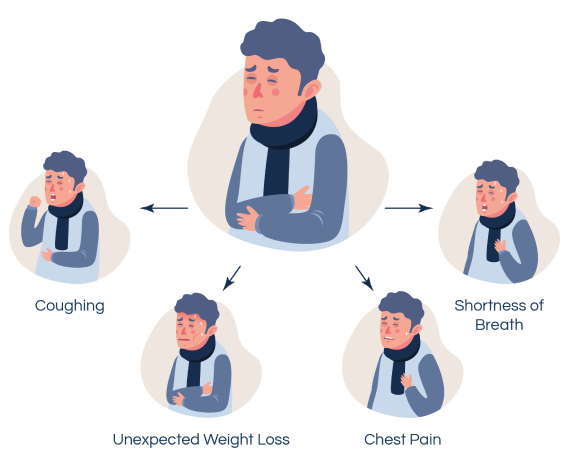
Doctors will likely begin detecting mesothelioma with an X-ray or MRI. If they detect abnormalities, the next step is a biopsy to confirm that mesothelioma is present.
Mesothelioma primarily impacts senior citizens. Two-thirds of all mesothelioma cases occur in those over 65. The primary reason mesothelioma is more common in older people is its long latency period, which is the amount of time it takes the disease to develop. According to the Mayo Clinic, mesothelioma’s latency period is 20 to 60 years after asbestos exposure.
Veterans and Mesothelioma
Veterans, especially senior veterans, are at elevated risk for developing mesothelioma. Because asbestos is highly heat and fire-resistant, all military branches used it to build ships, aircraft carriers, car and airplane parts, and bases. While Navy veterans are at the highest risk due to the presence of asbestos in ships and other naval construction, all branches have incidences of mesothelioma.
Senior veterans are at a significantly elevated risk of developing mesothelioma since asbestos exposure dangers were not publicly known until the 1970s. Veterans who were exposed to asbestos during their service and later developed an asbestos-related condition such as mesothelioma are eligible for VA disability benefits.

Prognosis and Life Expectancy of
Mesothelioma for Seniors
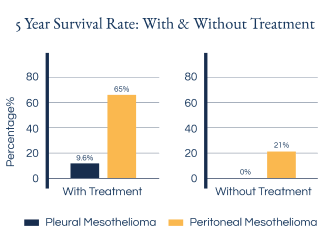
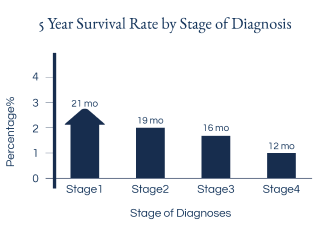
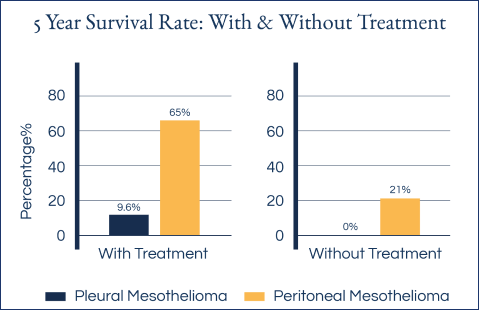
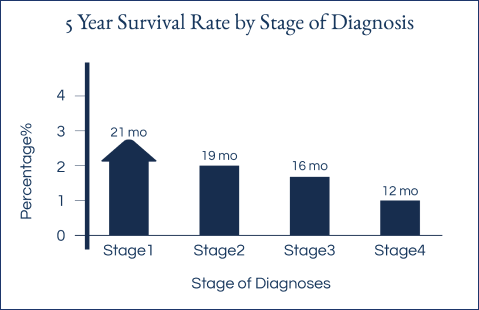
Mesothelioma is a highly aggressive form of cancer. The prognosis of mesothelioma in seniors is heavily dependent on how early you discover the cancer. Generally speaking, the average life expectancy of someone diagnosed with mesothelioma is between six months and three years. About 12 percent of mesothelioma patients will survive beyond five years after the initial diagnosis.
The prognosis for seniors with mesothelioma can also be influenced by a patient’s age, overall health prior to developing the disease, and the types of treatment options available to them, given their condition and health. Seniors tend to experience other health conditions associated with getting older that put them at risk for more serious illness—such as heart issues and a weakened immune system—so those with mesothelioma often have a poorer prognosis.
Living With Mesothelioma
Various options are available for seniors with mesothelioma aiming to extend their life expectancy. Improvements in chemotherapy drugs and the development of more targeted radiation therapy procedures have made mesothelioma treatments more effective. Patients may also be able to participate in clinical trials to access cutting-edge treatments that are not yet available to the general public.
However, the treatment options available to people living with mesothelioma depend on a variety of factors, including a patient’s age and overall health. Some of the more invasive or intensive treatment options, including surgery, may not be an ideal fit for seniors. Your doctor should thoroughly explain the benefits and risks of all your treatment options, but you should not hesitate to ask as many questions as you need to make an informed decision.
Aside from treatment options like chemotherapy and radiation, there are other ways patients can help improve their quality of life. There are palliative treatments designed to reduce certain symptoms, such as shortness of breath and discomfort, caused by fluid buildup. You can also talk to your doctor about pain management options, such as medication or working with a physical therapist to learn how to better avoid pain when moving your body. Some people find that talking to doctors, social workers, friends and family, or support groups can help them manage their stress and find comfort.
Treatment Options for Seniors With Mesothelioma
Several possible treatment options exist for seniors with mesothelioma. Some of the treatment options available include:
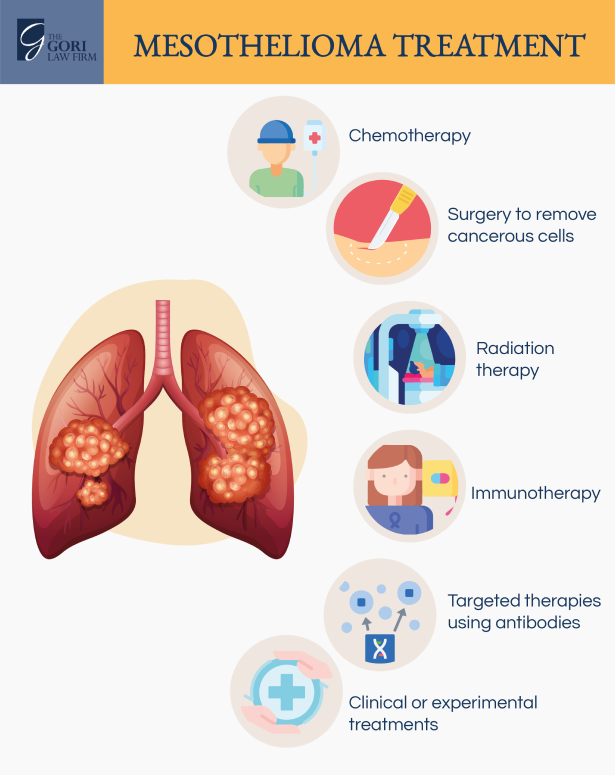
It is not unusual for a physician to suggest a multimodal treatment approach, combining several treatments to maximize positive results.
The treatment options available to a senior mesothelioma patient depend on several factors, including age. Depending on age and overall health, seniors are sometimes advised to avoid major surgery. In these cases, treatments such as chemotherapy and radiation are preferable.
Clinical Trials for Mesothelioma
Mesothelioma clinical trials test new therapies and treatments that have not yet received FDA approval. These trials let qualifying patients access new treatments that are going through the lengthy approval process.
Clinical trials carry risks. The treatments they test are unproven, and those who participate in them understand they are experimental. However, medical professionals strictly regulate them for safety, and patients have the right to stop participating in the trial at any time. Some mesothelioma clinical trials have delivered promising results. In some studies, median survival times were over 18 months, while others had a survival rate of 85 percent, with 61 percent stopping the spread of their cancer.
Hospitals and cancer centers typically conduct clinical trials. If you want to learn more about clinical trials or apply to participate, ask your physician which trials you may be eligible for.
Caring for Seniors With Mesothelioma
When caring for seniors with mesothelioma, caregivers and family members are essential in supporting and advocating for patients. Managing mesothelioma is often overwhelming, involving many care providers and possible treatments. Communicating with physicians and helping the person with mesothelioma understand the available treatment options can make a significant positive impact on a patient’s quality of life.
Caregivers often provide support with the logistical elements of managing mesothelioma as well, including providing transportation to and from appointments and assisting with household chores and errands. Caregivers frequently become responsible for the activities of daily living that the patient is unable to manage due to their mesothelioma symptoms and the effects of treatments.
The stress to caregivers for seniors with mesothelioma is not easy to manage alone. Support groups and resources may be available to caregivers in your area and online.
Additional Care for Mesothelioma
Seniors with mesothelioma often require residential care while undergoing treatment. Patients also have additional care options, such as assisted living, nursing home care, or hospice care.
Assisted Living
Assisted Living
Assisted living maintains your independence while living with mesothelioma. For patients with a lower level of need, assisted living is beneficial. These facilities generally help with daily living, including providing meals and laundry services for residents. For example, an individual with mesothelioma may benefit from assistance with physical tasks, such as carrying groceries or laundry, due to shortness of breath. An individual who does not require around-the-clock medical care may be a good fit for assisted living.
Benefits of Assisted Living
- Generally help with daily living
- Assistance with physical tasks
- Around-the-clock medical care

Nursing Homes
Nursing Homes
Nursing homes provide daily living and medical support on a more intensive level than assisted living facilities. Nursing homes generally offer 24-hour medical services, including administering medication and helping with daily living. Patients who require frequent medical attention and monitoring are more suited to a nursing home than an assisted living facility.
Benefits of Nursing Homes
- Provide daily living and medical support on a more intensive level
- Generally offer 24-hour medical services
- Patients who require frequent medical attention and monitoring

Hospice Care
Hospice Care
Hospice care provides comfortable and medically monitored care for patients who are no longer responding to or participating in treatment for mesothelioma. Hospice care may be a beneficial option for terminal patients who require medical care and pain management.
Benefits of Hospice Care
- Provide comfortable and medically monitored care for patients
- Beneficial option for terminal patient

Legal and Financial Factors of Mesothelioma
Since it is primarily caused by exposure to asbestos, seniors with mesothelioma have legal options available to seek justice and compensation after asbestos exposure. Victims of asbestos exposure that leads to mesothelioma can file personal injury lawsuits to seek compensation for medical expenses and pain and suffering. Loved ones of mesothelioma victims who have passed away may be able to file a wrongful death lawsuit and seek compensation for funeral expenses, loss of income, and other damages. You may also be able to file a compensation claim with an asbestos trust fund.
The cost of treatment for mesothelioma is often beyond what many can afford. However, financial resources are available to patients worried about cost. Clinical trials often come at no cost to the patient. Health insurance may also help cover some of the costs. Some doctors and hospitals will work with patients to develop a more manageable payment plan. You can ask your health care provider’s billing department about ways to lower your bill or if a payment plan is available.
Some organizations also offer financial assistance for mesothelioma patients struggling to cover their bills. The American Cancer Society and the National Cancer Institute are examples of organizations that provide grants.
Support Resources for Seniors With Mesothelioma
If you or a loved one has been diagnosed with mesothelioma, there are organizations and resources ready to help. Several mesothelioma awareness and support groups across the United States work to connect seniors diagnosed with mesothelioma with financial, legal, medical, and social resources. Social media and cancer societies can be useful for locating these groups, but hospital social workers and physicians are also available to help.
Hospitals and cancer centers often offer access to support groups where patients with mesothelioma can come together and share their experiences. The American Cancer Society also helps connect individuals with support groups and other resources.


